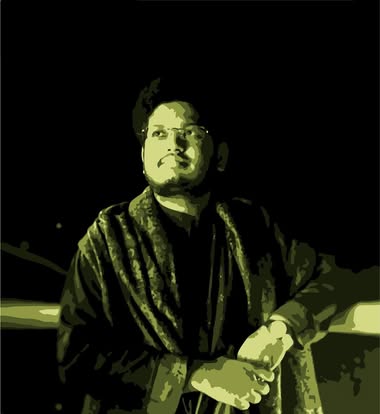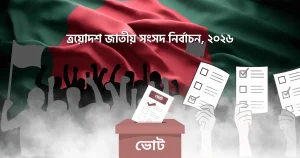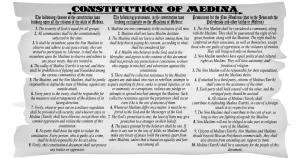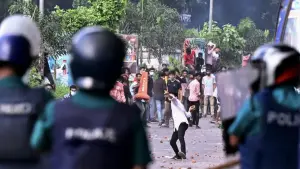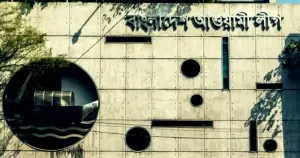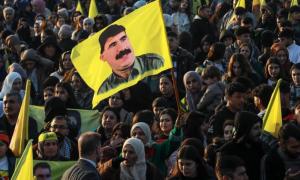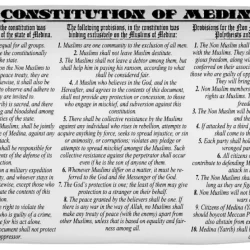India has long been known as a diverse and secular country, where people of all religions and backgrounds coexist peacefully. However, in recent years, there has been growing concern over the impact of the Rashtriya Swayamsevak Sangh (RSS), a right-wing Hindu nationalist organization, on India’s secularism and social harmony. With its ideology of Hindutva and close ties to the ruling Bharatiya Janata Party (BJP), the RSS has been accused of promoting a divisive and discriminatory agenda that threatens to undermine India’s pluralistic society. This article will explore the question of whether the RSS is a threat to India’s secularism by examining its ideology, policies, and historical links to Nazi Germany, as well as the impact of these factors on communal tensions and polarization in India.
The concept of secularism in India’s Constitution
Now, before heading toward the “Desi Nazi, RSS”, let’s try to understand the constitutional philosophy of India. India is a secular country, at least constitutionally. Secularism is one of the fundamental principles upon which the Indian Constitution is built. The concept of secularism in India implies that the state has no official religion and that all religions are equal before the law. It ensures that the state does not discriminate based on religion and that individuals are free to practice and propagate their religion of choice without fear of persecution or discrimination.
India’s Constitution defines secularism as the separation of religion from state affairs. The Preamble of the Constitution declares India to be a secular state, which means that the government must treat all religions equally and not favor any particular religion. The concept of secularism is enshrined in various provisions of the Constitution, including Articles 25-28, which protect the freedom of religion and ensure that the state does not interfere with religious practices. Article 14 guarantees equality before the law for all citizens, regardless of their religion, and Article 15 prohibits discrimination on the grounds of religion. Additionally, the Constitution prohibits the state from establishing or promoting any particular religion, ensuring that the government remains neutral on matters of faith.
The idea of secularism was enshrined in the Indian Constitution by the founding fathers of the nation, who believed in the principles of equality, freedom, and justice. The Indian Constitution guarantees every individual the right to freedom of religion and the right to practice, profess, and propagate any religion of their choice. It also prohibits the state from discriminating against any individual or community based on religion.
Secular India and the nature of its so-called Secularism
The concept of secularism in India is not limited to religious freedom and equality. It also promotes social harmony and the peaceful coexistence of diverse communities. It recognizes the importance of respecting and understanding different cultures and traditions and promoting mutual respect and tolerance.
Overall, the concept of secularism in India is a cornerstone of the nation’s constitutional and democratic framework. It upholds the values of pluralism, diversity, and tolerance, and plays a crucial role in ensuring that India remains a harmonious and inclusive society.
However, Rashtriya Swayamsevak Sangh’s (RSS) ideology and policies, including its promotion of Hindu nationalism and its discriminatory treatment of minority communities, pose a significant threat to India’s secularism and social harmony. As such, the public must be aware of this threat and its potential consequences for India’s diverse society.
What is the RSS?
The Rashtriya Swayamsevak Sangh (RSS) is a right-wing Hindu nationalist organization in India. It was founded in 1925 as a cultural and social organization to promote Hindutva, a Hindu nationalist ideology by Keshav Baliram Hedgewar. Being a doctor, he sought to create a Hindu nationalist movement to counter British colonial rule in India. The RSS is known for its ideology of Hindutva, which seeks to promote the interests of Hindus in India and create a Hindu Rashtra (nation).
The RSS has a significant presence in Indian society and politics, with millions of members and affiliates. It is often described as the ideological parent of the ruling Bharatiya Janata Party (BJP), which came to power in India in 2014 under the leadership of Prime Minister Narendra Modi.
The RSS has been involved in various social and political movements in India, including the Ram Janmabhoomi movement, which sought to build a temple to Lord Ram in Ayodhya on the site of the Babri Masjid mosque. The demolition of the mosque in 1992 by Hindu nationalists led to widespread communal violence in India.
The RSS has also been linked to various incidents of communal violence and religious polarization in India, particularly against minority communities such as Muslims and Christians. The organization has been accused of promoting a divisive agenda that seeks to marginalize and discriminate against these communities.
Despite facing criticism for its policies and actions, the RSS continues to be a powerful force in Indian politics and society, and its influence is likely to continue shaping the country’s social and political landscape in the years to come.
The Ideology of RSS
India is a diverse country with a rich history of religious and cultural plurality. The country’s secular fabric has been a cornerstone of its democracy and social harmony since its independence. However, the ideology and policies of the Rashtriya Swayamsevak Sangh (RSS) and the Bharatiya Janata Party (BJP), which is ideologically aligned with the RSS, pose a threat to India’s secularism and social harmony.
The ideology of Hindutva
The RSS is ideologically based on the concept of Hindutva, which seeks to establish India as a Hindu Rashtra or Hindu nation. This goes against the principles of secularism enshrined in the Indian Constitution, which guarantees the right to freedom of religion and prohibits discrimination based on religion, caste, gender, and other factors. The BJP, which is the ruling party in India, has been promoting policies and laws that are seen as anti-minority and divisive, which have been criticized for undermining the country’s secular fabric.
The RSS’s ideology of Hindutva, which translates to “Hindu-ness,” is a nationalist ideology that seeks to establish India as a Hindu Rashtra or a Hindu nation. The RSS believes that Hindus are the true inheritors of Indian civilization and culture and that India should be a Hindu nation with a Hindu cultural identity.
The Hindutva ideology promotes the idea that non-Hindus in India are either outsiders or invaders who do not belong to the country. This divisive ideology has been used to create a sense of fear and hostility towards minority communities in India, particularly Muslims.
One of the key tenets of the Hindutva ideology is the idea of “Hindu Unity.” The RSS believes that all Hindus in India should unite to establish a Hindu nation. This ideology has been used to justify the suppression of minority communities in India and the promotion of majoritarianism.
The Hindutva ideology also promotes the use of force and violence to establish a Hindu nation. The RSS has been linked to several incidents of communal violence in India, particularly against minority communities. This has created an atmosphere of fear and insecurity among minority communities in India.
Criticism of the RSS’s views on minority communities and religious tolerance
The RSS has been criticized for its views on minority communities and religious tolerance. Its views on minority communities and religious tolerance are highly problematic. The organization promotes the idea that India is a Hindu country and that minorities should either assimilate into the majority culture or leave the country. This has led to the marginalization of minority communities in India, particularly Muslims.
The RSS’s stance on religious tolerance has also been criticized. The organization has been accused of promoting violence against religious minorities, particularly Muslims. This is reflected in incidents such as the 2002 Gujarat riots, where over 1,000 people, mostly Muslims, were killed. The riots were instigated by members of the BJP, which has close ties with the RSS.
Is the BJP a product of RSS?
Yes, the BJP (Bharatiya Janata Party) is widely considered to be the political arm of the RSS (Rashtriya Swayamsevak Sangh). The BJP was established in 1980 as a political party, and many of its founding members were associated with the RSS. The RSS serves as the ideological parent of the BJP, and many of the BJP’s policies are rooted in RSS ideology. The party’s ideology is also based on Hindutva and it has consistently advocated for the protection and promotion of Hindu culture and values.
The RSS and the BJP share many of the same goals and principles, and they work closely together to advance their agenda. Many BJP leaders, including Prime Minister Narendra Modi and Home Minister Amit Shah, have a background in the RSS, and the party often consults with RSS leaders on important policy decisions. Some critics have raised concerns about the close relationship between the RSS and the BJP, arguing that it undermines India’s secular values and allows the RSS to exert undue influence on the government. However, supporters of the RSS-BJP alliance argue that it is necessary to promote Hindu interests in a country with a majority Hindu population.
One of the most prominent aspects of this ideology is ‘Hindutva’, which we discussed earlier. The BJP and RSS promote the idea that India is a Hindu nation and that Hindus should be the dominant cultural and political force in the country. This has led to policies that are seen as discriminatory against religious minorities, particularly Muslims.
For example, the BJP has pushed for a nationwide ban on cow slaughter, which has led to violent attacks on Muslims and Dalits who are often involved in the meat and leather industries. In addition, the BJP has been criticized for its support of laws that make it difficult for Muslims to divorce, and for its opposition to laws that would criminalize marital rape.
The BJP’s election manifesto in 2019 stated that it would work towards the construction of a Ram temple in Ayodhya, where a mosque was demolished in 1992 by Hindu extremists was a key RSS agenda item.
The RSS has also been accused of promoting violence against religious minorities. For example, the 2002 Gujarat riots, in which over 1,000 people, mostly Muslims, were killed, were widely seen as being instigated by the RSS and its affiliated groups. Critics argue that the organization’s policies and actions are threatening India’s secularism and social harmony.
How RSS is connected with Hitler’s Nazi Philosophy?
The RSS has faced criticism for its alleged admiration for Hitler’s ideology and its historical links with Nazi Germany. In the 1930s, some members of the RSS were reportedly inspired by the Nazis’ racial ideology and authoritarianism.
The historical links between the RSS and Nazi Germany can be traced back to the 1930s. During the 1920s and 1930s, the RSS leadership was heavily influenced by European fascist and totalitarian movements. In 1931, a delegation from the RSS, led by the organization’s founder K.B. Hedgewar, visited Italy and Germany to study the Fascist and Nazi movements. In particular, the RSS admired Mussolini’s Fascist Party in Italy and believed that it had valuable lessons for Indian nationalism. This admiration extended to Nazi Germany as well, which was seen as a model for an authoritarian, nationalist state. After returning to India, Hedgewar reportedly instructed his followers to “adopt the methods of the Nazis to achieve the goals of the RSS.”
In 1934, the RSS established a military-style organization called the Hindu Militia, which was modeled after the Nazi Stormtroopers. The Hindu Militia was later renamed the Rashtriya Swayamsevak Sangh Volunteer Corps, which is still in existence today.
Some historians argue that there were direct links between the RSS and the Nazi Party. One of the most significant figures in this alleged relationship was Savarkar, who was a prominent member of the RSS and a key leader of the Hindu nationalist movement. In his writings, Savarkar expressed admiration for Hitler’s leadership and his efforts to build a strong, centralized state.
There is also evidence that the RSS may have provided support to the Nazi Party during World War II. For example, some reports suggest that the RSS offered to provide military assistance to the Germans in their campaign against the British in India. Additionally, there were reports of Indian prisoners of war who fought for the Germans and were members of the RSS.
During World War II, some members of the RSS reportedly sympathized with the Axis powers and supported their efforts to overthrow British rule in India. Some members of the RSS even allegedly fought alongside the Japanese in Burma.
Regardless of the nature of the relationship between the RSS and the Nazi Party, it’s clear that the RSS’s ideology of Hindutva and its emphasis on nationalism and authoritarianism has some troubling parallels with fascist and totalitarian movements. The alleged historical links between the RSS and Nazi Germany raise important questions about the organization’s commitment to India’s secular democracy and the values enshrined in the country’s constitution.
Alleged implications of Hitler’s ideology
The RSS’s alleged admiration for Hitler’s ideology raises serious concerns about its commitment to democracy and pluralism. Hitler’s ideology was based on principles of racism, authoritarianism, and the supremacy of the Aryan race. These values are incompatible with India’s constitutional commitment to secularism and religious pluralism.
Furthermore, the RSS’s alleged admiration for Hitler’s ideology raises questions about its views on minorities, particularly Muslims. In Hitler’s Germany, Jews were singled out as a “problem” and subjected to discrimination, persecution, and ultimately genocide. If the RSS shares Hitler’s views on race and ethnicity, it could be a cause for concern for India’s minority communities.
However, in a 2019 interview on Al Jazeera’s Head-to-Head, RSS leader Mohan Bhagwat denied any links between the RSS and Nazi Germany, and he rejected allegations of admiration for Hitler’s ideology. Bhagwat argued that the RSS’s ideology is based on “nationalism, culture, and spiritual values,” and that it is committed to “social harmony and unity.”
Many critics remain unconvinced by Bhagwat’s denials. They point to the RSS’s history of violence against minorities and its continued promotion of Hindutva ideology as evidence of its commitment to Hindu nationalism and exclusionary policies.
The RSS’s alleged admiration for Hitler’s ideology and its historical links with Nazi Germany raise serious questions about its commitment to India’s secular and democratic values. While the RSS leadership denies any such links or admiration, its continued promotion of Hindutva ideology and its history of violence against minorities suggest otherwise.
The Impact of RSS and BJP’s Policies
It is important to note that while the RSS and the BJP are distinct organizations, there is a close ideological and organizational link between the two. The RSS is the parent organization of the BJP. The Bharatiya Janata Party (BJP) is a political wing of the Rashtriya Swayamsevak Sangh (RSS) and many of the leaders of the BJP are also members of the RSS. Therefore, the policies and ideology of the RSS have a significant influence on the policies and ideology of the BJP.
The policies of the RSS and BJP have been the subject of intense debate in recent years. Critics have argued that these policies are a threat to India’s secularism and social harmony. This section will explore some of the policies of the BJP that have been criticized for being anti-secularism and ultimately anti-constitutional and pose a threat to the existence of the secular nature of India.
Anti-minority policy
The policies of the RSS and the BJP have faced criticism for being anti-minority and hindering India’s secularism. The NRC and CAA events have also raised concerns about the impact on India’s secularism and social harmony.
The CAA or the Citizenship Amendment Act grants citizenship to illegal immigrants from Afghanistan, Pakistan, and Bangladesh belonging to Hindu, Sikh, Jain, Buddhist, Christian, and Parsi communities, but not Muslims. And the National Register of Citizens (NRC) is a controversial exercise aimed at identifying “genuine” Indian citizens and identifying illegal immigrants who might have entered the state from neighboring countries such as Bangladesh. The process involved verification of documents to prove ancestry and residency in the state before a certain cutoff date.
However, both the NRC and CAA process has been criticized by many as being biased against Muslims and creating a state of fear and uncertainty among vulnerable communities. The critics allege that the process is part of the BJP’s larger anti-Muslim agenda, and that the implementation of the NRC has been marked by incidents of violence and discrimination against minorities.
The Delhi riots of 2020 were a series of violent clashes that occurred in northeast Delhi between the 23rd and 26th of February 2020. The riots began as a result of protests against the Citizenship Amendment Act (CAA), which many people saw as discriminatory against Muslims. The violence quickly escalated into communal riots, with Hindu mobs attacking Muslim neighborhoods and individuals, leading to over 50 deaths and hundreds of injuries.
Many have accused the ruling BJP of inciting and facilitating the violence, with some BJP leaders even making provocative speeches in the days leading up to the riots. The Delhi Police, which reports to the central government, has also been criticized for its handling of the riots, with allegations of bias and complicity in the violence.
Communal tensions
The policies of the BJP have also led to communal tensions and polarization in India. The rise of Hindu nationalism has led to an increase in attacks against minorities, particularly Muslims. The political discourse has become increasingly divisive, and the BJP has been accused of using communalism as a tool to polarize voters and gain political power.
The BJP’s election manifesto in 2019 stated that it would work towards the construction of a Ram temple in Ayodhya, where a mosque was demolished in 1992 by Hindu extremists was a key RSS agenda item.
The RSS has also been accused of promoting violence against religious minorities. For example, the 2002 Gujarat riots, in which over 1,000 people, mostly Muslims, were killed, were widely seen as being instigated by the RSS and its affiliated groups. Critics argue that the organization’s policies and actions are threatening India’s secularism and social harmony.
The ban on hijab in institutions is another policy that has been implemented in various states, including Kerala and Assam, and has faced opposition from civil society and minority groups. The policy has been criticized for violating the rights of Muslim women to practice their religion and their right to education.
Along with the ban on the hijab, there have been instances of attacks on Christians and their institutions in some parts of India by Hindu nationalist groups who believe that the country should be exclusively Hindu. These groups are often linked to the RSS and have been known to propagate anti-Christian sentiments. In some cases, state governments that are led by the BJP have passed laws that restrict conversions from Hinduism to other religions, including Christianity. However, these laws have been challenged in courts and have not been implemented uniformly across the country.
Cow Vigilantism and Anti-Muslim Violence
The issue of cow vigilantism has been a major point of contention in India in recent years. Cow protection has been a significant part of Hinduism, and the cow is considered sacred in the religion. However, in recent years, the issue of cow protection has taken on a more political tone, with some right-wing groups using it as a way to promote their agenda.
One of the most notable incidents of cow vigilantism in India occurred in 2015 in Dadri, Uttar Pradesh. A mob attacked and killed a Muslim man, Mohammed Akhlaq, on suspicion of eating beef. In 2017, a similar incident occurred in Alwar, Rajasthan, where a group of cow vigilantes attacked and killed a Muslim man, Pehlu Khan, who was transporting cattle.
In 2019, a group of Muslim men were beaten up by a mob in Gurugram, Haryana, on suspicion of transporting beef. In 2020, a Muslim man was beaten to death in Jharkhand on suspicion of cattle theft.
But why did they kill a human in the name of protecting a cow? One of the motives behind cow vigilantism in India is the belief among certain Hindu nationalist groups that cows are sacred and therefore should not be killed for meat. However, this belief is not shared by all Hindus, and many Indian states allow for the slaughter of cows for consumption.
There are some Hindu communities, such as the Aghori sect and some Dalit communities, that do consume beef. Additionally, some certain Hindu rituals and ceremonies involve the sacrifice of animals, including cows, though this practice is generally not widespread or accepted by mainstream Hinduism. There are a few states in India where cow slaughter is allowed and consumption of cow meat is not prohibited by law. Such as Kerala, West Bengal, Arunachal Pradesh, Meghalaya, Nagaland, Mizoram, Tripura. However, cow slaughter may require permits or licenses.
There are also economic factors at play, as India is one of the world’s largest exporters of beef. Some individuals and groups may be involved in cow vigilantism as a means of protecting the beef industry or their economic interests.
The Revocation of Jammu and Kashmir’s Special Status
In August 2019, the Indian government led by the BJP revoked the special status granted to the northern state of Jammu and Kashmir, which had been in place since India’s independence in 1947. The move was made without the consent of the people of the state and without any meaningful consultation with local political leaders.
Jammu and Kashmir’s special status was granted under Article 370 of the Indian Constitution, which gave the state significant autonomy in matters of governance and allowed it to have its constitution and flag. The revocation of this status has been widely criticized as a violation of the principles of federalism and democracy enshrined in India’s constitution.
The revocation of Article 370 has also raised concerns about the BJP’s commitment to secularism and religious tolerance. Jammu and Kashmir is a Muslim-majority state, and the revocation of its special status has been viewed by many as an attempt by the BJP to further its Hindu nationalist agenda and marginalize Muslim voices.
Since the revocation of Article 370, the Indian government has imposed a heavy security presence in Jammu and Kashmir, with reports of human rights abuses and violence against civilians. The communication blackout in the region has made it difficult to obtain reliable information about the situation on the ground. But there have been reports of extrajudicial killings, torture, and arbitrary detention.
Should we be aware of the RSS and the BJP?
The RSS’s ideology and policies pose a significant threat to India’s secularism and social harmony. The historical links between the RSS and Nazi Germany, the organization’s views on minority communities and religious tolerance, and its promotion of Hindu nationalism all contribute to this threat. Cow vigilantism and anti-Muslim violence further exacerbate communal tensions and polarization in India.
The BJP’s policies, such as the Citizenship Amendment Act (CAA) and the revocation of Jammu and Kashmir’s special status, have been criticized for being anti-minority and negatively affecting neighboring countries. The ban on the hijab in institutions and the NRC also has implications for India’s secularism and social harmony.
It is crucial to take steps to mitigate this threat and preserve India’s secularism and social harmony. These steps could include addressing issues related to cow protection, hijab bans, the NRC, the CAA, and the restoration of Jammu and Kashmir’s special status. The government and civil society should work together to promote interfaith dialog, religious tolerance, and communal harmony.
India’s secular fabric and diverse culture have been the foundation of the country’s progress and growth. We must work towards preserving this fabric and ensuring that India remains a beacon of tolerance and inclusivity. Only then can India reach its full potential as a vibrant and thriving democracy.
